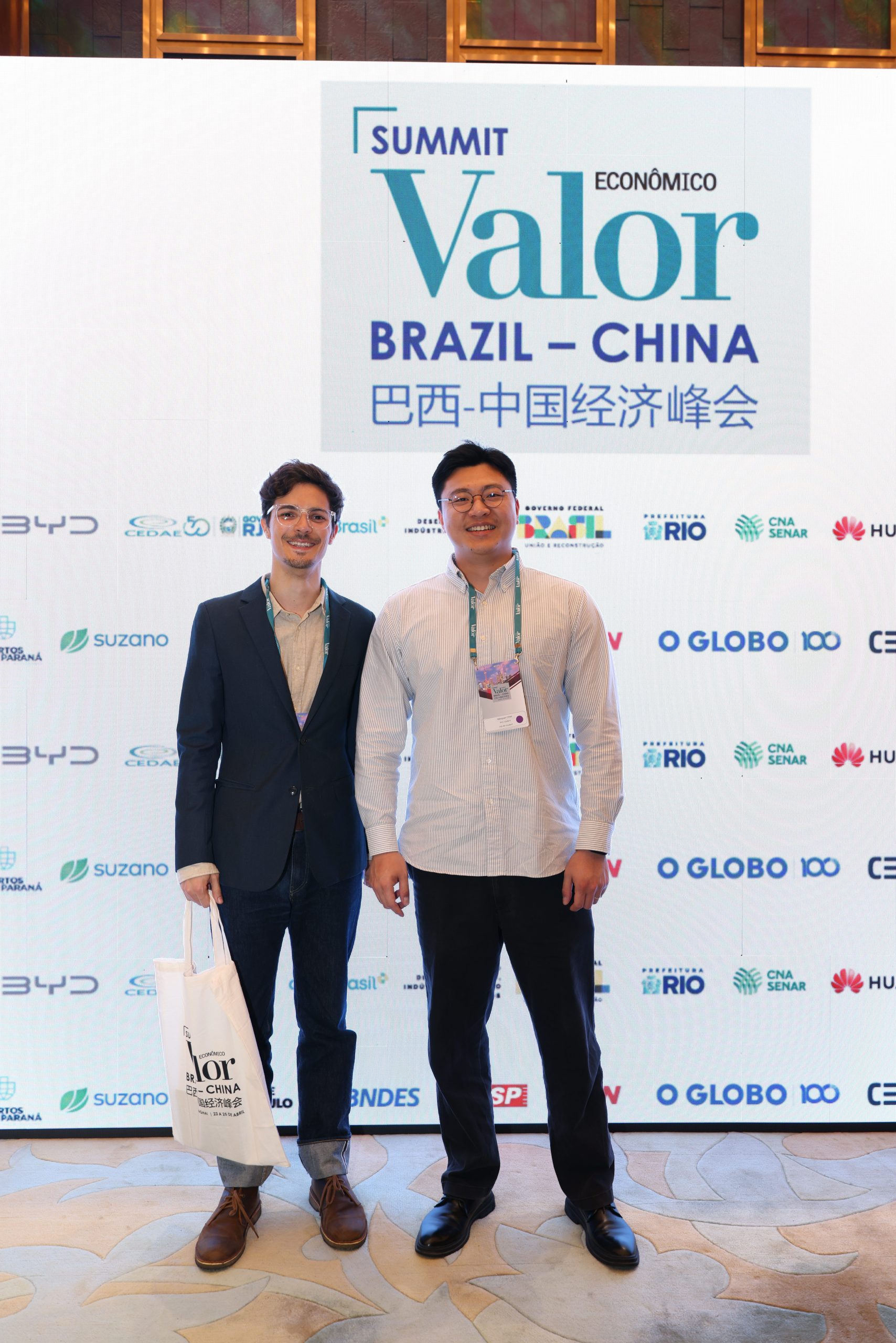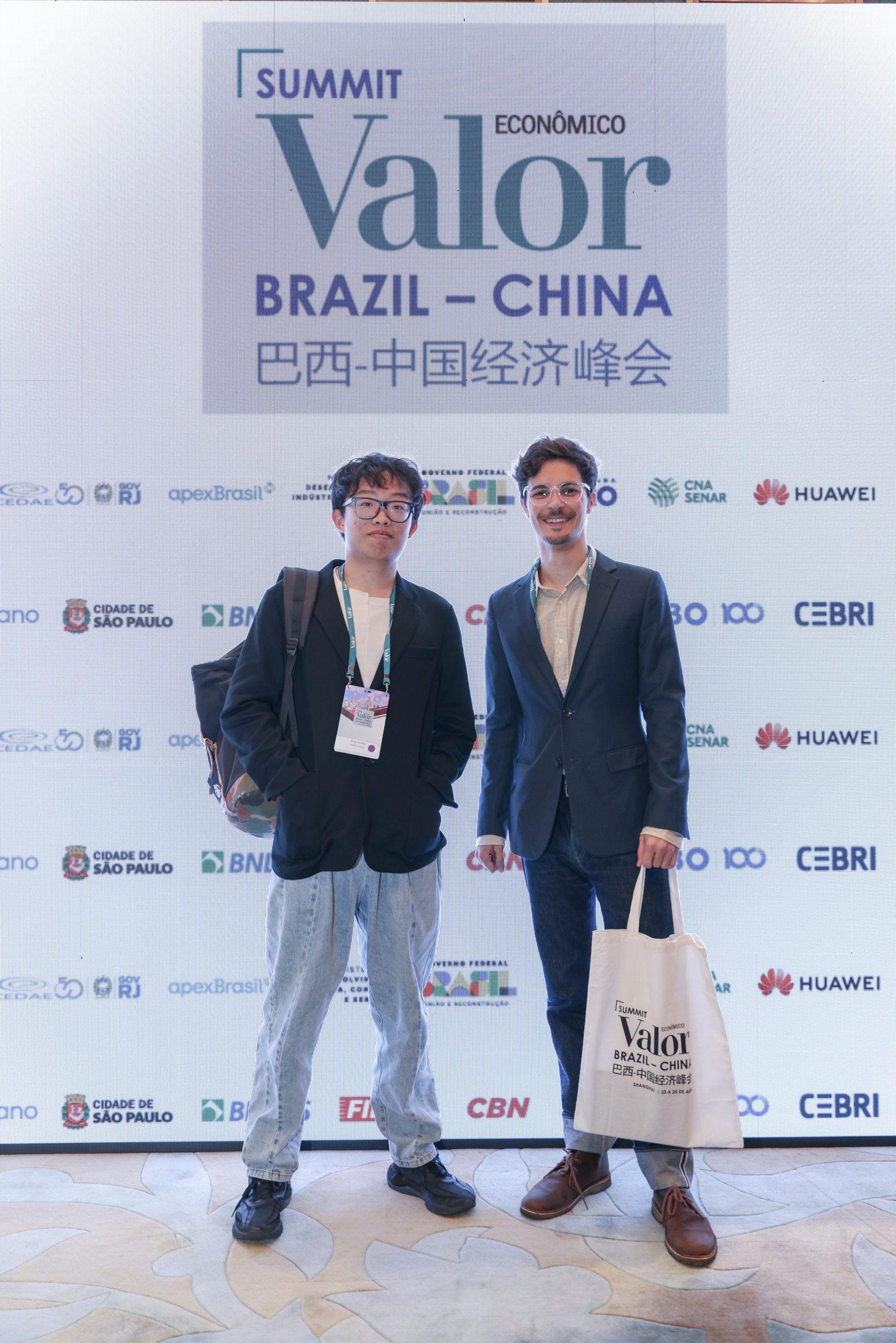22 May 2025
On April 23rd 2025, Shanghai became the meeting point for a growing strategic partnership between Brazil and China. A group of 15 students from the Department of International Studies, organized by Dr Niklas Weins and Dr Lingbo Shangguan, participated in the summit.
Hosted by Valor Econ?mico, Brazil’s most prominent financial newspaper, the Brazilian Center for International Relations (CEBRI) and Caixin Global, the Brazil–China Economic Summit brought together government officials, business leaders, researchers, and media representatives. Through a series of panels, the summit explored new ways for the two countries to deepen cooperation across key sectors such as energy, agriculture, technology, and finance. At its core, the event reflected a shared ambition: to move beyond traditional trade ties and build a more diversified, sustainable relationship in a rapidly changing world.

The summit opened with a clear message—Brazil and China are no longer just commodity partners. They are seeking long-term alignment. From the very first panel on smart cities and innovation, this shift was visible. The vice mayors of Hangzhou and Suzhou presented examples of urban planning and digital technologies that could support Brazil’s urban development. In return, Brazilian speakers like Elias Jabbour from the Pereira Passos Municipal Urban Planning Institute in Rio de Janeiro highlighted the need for tech partnerships that respect local needs while bringing in new solutions for traffic management, environmental monitoring, and public services.
This spirit of collaboration extended into the extractive industries. A panel on mining and steel gathered representatives from both Brazilian and Chinese academia, government and companies to talk about modernizing mineral supply chains. While the past has often been marked by unequal trade patterns, the conversations focused more on value-added processing, environmental responsibility, and building shared knowledge. This change of tone matters. It shows that both sides are willing to rethink how natural resources are exchanged and used.
One of the strongest themes of the summit was the energy transition. Brazil already produces a large share of its electricity from renewable sources, but the challenge now is storage, smart grids, and wider access. Chinese companies expressed clear interest in joining Brazil’s green energy journey, not only through investment but also through joint research and innovation. As climate concerns grow globally, this kind of South–South partnership could become a model for others.
 ???
???
Agriculture, as the biggest motor for growth in the bilateral partnership remained a central topic, but again, the focus shifted from raw exports to technology and food security. Discussions on meat production, soy supply chains, and cold storage logistics showed how deeply China is integrated into Brazil’s agribusiness sector. What stood out, however, was the growing emphasis on sustainability through better traceability, animal health, and responsible land use. Another key aspect was the emphasis from the Chinese side to be willing to diversify its imports from Brazilian agricultural producers. Both sides seemed to agree that future food cooperation must balance productivity with environmental responsibility, as the biggest share of Brazil's harmful carbon emissions still comes from land use change.
Finance and infrastructure played important roles throughout the whole day. Chinese banks, along with institutions like Brazil’s BNDES, discussed how new tools like green bonds and development finance can support joint projects. From port upgrades in Paraná to highway logistics in S?o Paulo, the message was clear: Brazil welcomes long-term Chinese involvement, but seeks partnerships that share responsibility and local benefits.

The final panel on electric vehicles showed just how fast this relationship is expanding. Chinese companies like BYD presented their plans for building and developing EVs in Brazil, not just selling them. With Brazil looking to modernize its transportation sector, this cooperation promises to create more high-skilled jobs, reduce emissions, and bring advanced technology into local markets.
Looking back, the summit made one thing very clear—the relationship between Brazil and China is entering a new phase. It is no longer just about commodity trade but transforming their partnership based on shared ideas of development. As both countries face global uncertainty—climate risks, supply chain disruptions, and shifting geopolitical pressure—they are also realizing the power of working together. This partnership is becoming more equal, more forward-looking, and more rooted in shared challenges, especially when it comes to climate change.
The direction is clear: this is no longer a story of raw materials crossing oceans. It is a story of two nations trying to build the future together.

Contributed by: the Department of International Studies
22 May 2025









